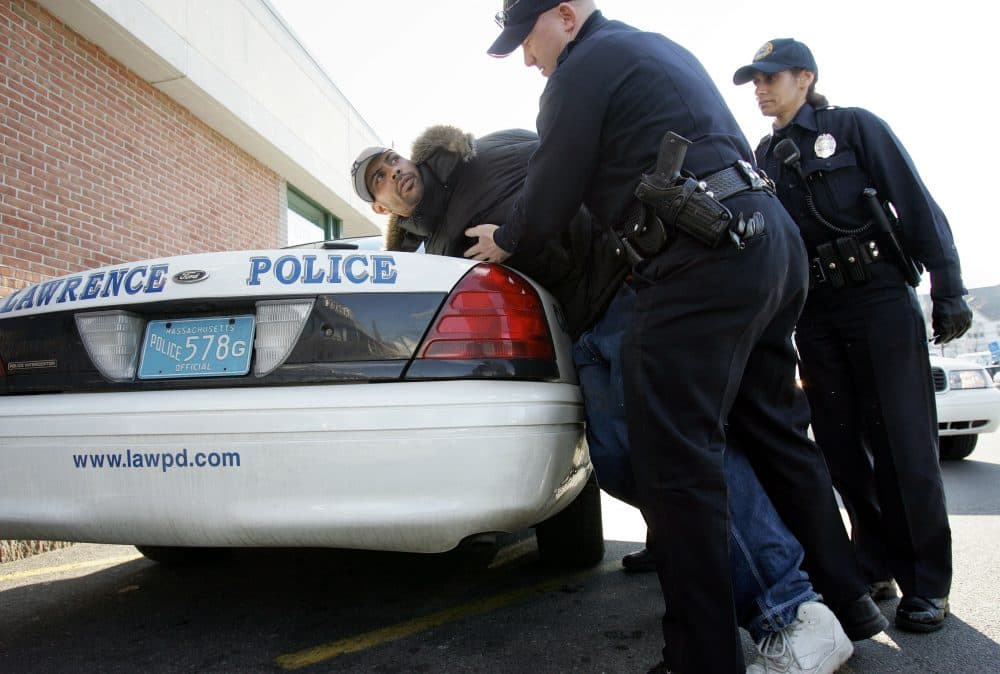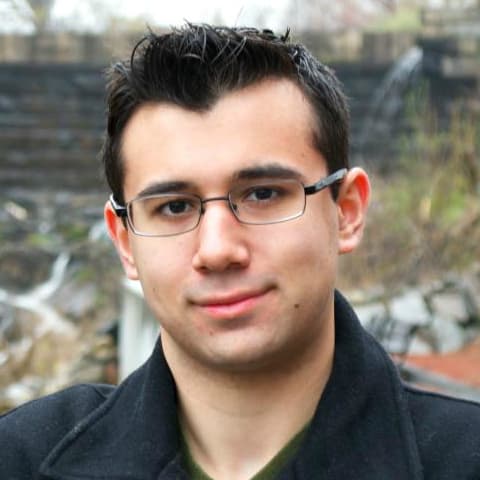Advertisement
COMMENTARY
Why A War On Drugs In Lawrence Isn't The Answer — And Could Create More Problems

After college, in 2012, I moved back home to Lawrence, and nearly every day I noticed unfamiliar cars, usually with New Hampshire plates, parked briefly on the street outside my family’s gray triple-decker.
I had grown up in that neighborhood, in that city, and I knew the occupants were probably buying drugs. My small street saw a lot of action — it was a popular spot to abandon stolen cars. Unmarked police cars camped outside our home for drug busts a block or two away. Once, there was a murder in the neighborhood. During the manhunt, my dad and I were painting our garage. A man — the suspect — emerged from some nearby trees. Seconds later, a cop popped out of a minivan that had been driving down the street and aimed his gun at the man. My dad and I were down-range from the cop's barrel. Dad told me to hide in the garage, but the man surrendered within moments.
So I had a gut-feeling about the (usually) white drivers and passengers from New Hampshire who parked outside our house, their car engines still running. That feeling was often confirmed when I saw another vehicle pull up beside one of the cars, or a person walk over, and exchange something through the window.
My parents and even my grandmother, then in her late 80s, often confronted these strangers. They’d ask who they were waiting for, call their bluff and tell them to leave. Sometimes they’d try to shout the customers away, bellowing from the porch or a window. My grandma — a tough old Lithuanian whose parents were part of the early wave of European immigrants to Lawrence — would grab her cane, shout and try to scare them off.
My grandma -- a tough old Lithuanian whose parents were part of the early wave of European immigrants to Lawrence -- would grab her cane, shout and try to scare them off.
These weren’t the wisest decisions. But my family felt they had to defend the block themselves. Sometimes they'd call the police with descriptions of the cars outside our home or ask for an occasional patrol down the street. Their requests went ignored.
Then, a few weeks ago, the Lawrence Police Department and the issue of outsiders buying drugs in the city exploded. A video showed a Lawrence police officer dragging a young white man out of his car and forcing him to the ground. Locals have criticized the officer’s conduct, but Lawrence Mayor Dan Rivera defended his actions in a now-deleted Facebook post.
“The video is not pretty but, not inappropriate,” he wrote. He said he understood why the cop got heated with the driver, and maintained that the vehicle had circled the neighborhood, clearly looking for drugs. “It is necessary to let the outsiders know, they are not welcome,” he added, ending on the all-caps rally cry that “LAWRENCE WILL NOT BE YOUR DRUG MALL ANY MORE.”
The text of the post can still be found in a DigBoston column by Maya Shaffer, who also notes past incidents of LPD’s questionable conduct. The driver, who was arrested and charged with disorderly conduct and resisting arrest, denied that he was searching for drugs.
Lawrence has problems with drug-related crimes, but a localized war on drugs won’t solve that. Rather than scare white drug addicts away, it will send more young men of color into the prison system.
The content of Rivera's post isn’t out of character. His campaign against Lawrence’s "drug mall" goes back to his early days in office. And his support for the police department was echoed in his initial opposition to Lawrence’s Trust Act, which prohibited police from enforcing federal immigration law, fearing it would make it harder for police to do their jobs. (The mayor now supports Lawrence’s "sanctuary city" status, and is suing Trump to fight federal funding penalties.)
However, the rhetoric about outsiders and his defense of the officer’s behavior is worrisome. Lawrence has problems with drug-related crimes, but a local war on drugs won’t solve that. Rather than scare white drug addicts away, it will send more young men of color into the prison system.
It’s hard to trust the idea of imbuing police with more reach, power and authority in a Latino-majority city. While there isn’t much data nor media coverage on police brutality against Latinos, most information suggests it’s already a problem. In 2016, police killed 183 Latinos, 3.23 per million — compared to 2.9 per million for whites. (In raw numbers, police kill more white people than anyone each year.) The numbers were higher in 2015 — 195 Latinos killed by police, or 3.45 per million. Given that some Latinos may identify as white or black, the toll could be even higher. Latinos — who make up 17 percent of the population — account for 23 percent of all traffic searches and nearly 30 percent of arrests.
Lawrence has always been a tough city. But being tough can’t solve everything, including crime.
